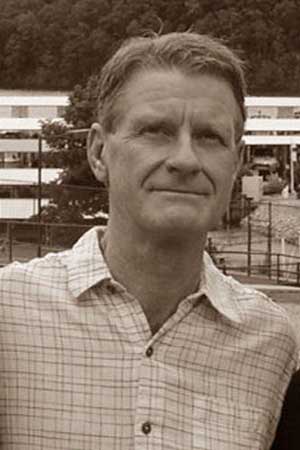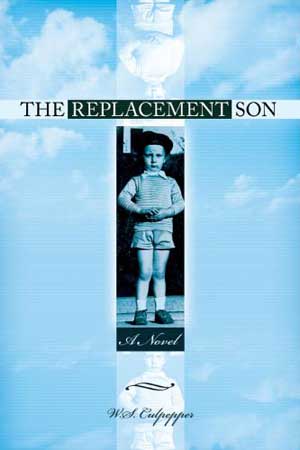 Survivors are supposed to be grateful, among the lucky ones. But most combat survivors don’t speak about their ordeals and can quickly become the lost and forgotten ones.
Survivors are supposed to be grateful, among the lucky ones. But most combat survivors don’t speak about their ordeals and can quickly become the lost and forgotten ones.
Author W.S. Culpepper is reaching readers to prevent that from happening for at least one wartime survivor. His highly acclaimed new novel, The Replacement Son , shines a light on one man’s struggle with the trauma of survival—in a family and after a war.
Speaking during a book signing in his hometown of New Orleans, Culpepper talks about why he decided to write the novel.
“Today’s younger generations don’t study modern history, and most of their relatives who served in WWII are already dead. The personal stories are fading away and not generally known outside museum archives.
“I wanted to write a story about a young man from my hometown of New Orleans who must step up and become the replacement son, take charge of his family after a terrible loss—the death of an older brother whom he’d never known. I wanted to appeal to adult readers across generations, so I decided to tell the hero’s story from two interlaced time frames: as a young man coming of age during WWII and as an elderly man, looking back on his life, whose time is running out but who still has unfinished business with the family.
“My hero’s story is based on real-life family events. My mother’s family had lost their first-born son, and their only remaining son enlisted in the Army Air Corps shortly after America entered WWII. My uncle served in the air war over Germany with the Eighth Air Force,” Culpepper said.
“He was as a gunnery sergeant with the 93rd Heavy Bombardment Group, the most decorated B-24 outfit in the Army Air Corps. Like the rest of the Eighth Air Force, his squadron sustained terrible losses.
“The average lifespan of a crew and aircraft was seven missions. My uncle completed the thirty missions required of lead crews. He saw lots of his brothers-in-combat go down, lost almost as many during early training runs, and returned to too many barracks with too many empty bunks.
“My uncle and I spent countless hours together over a period of about four years, talking about his wartime experiences. He also shared a personal treasure trove of unpublished diaries, memoirs, and artwork passed down from members of his squadron and crew.
“This rich fabric of personal history is the dramatic basis for what happens to my fictional hero, Harry, from basic training, through first combat mission, gruesome air battles, flak fatigue, and dealing with that ‘unfinished business’ after the war, as he struggles to accept fate’s gift and answer its challenges as a survivor. From the cauldron of war through the aftermath of Hurricane Katrina in New Orleans, Harry must define himself, earn his place in the family, and heal the wounds of combat and personal disaster.
“My uncle’s life was the inspiration for much of this story; I consider it an honor and an obligation to share it with others.”


